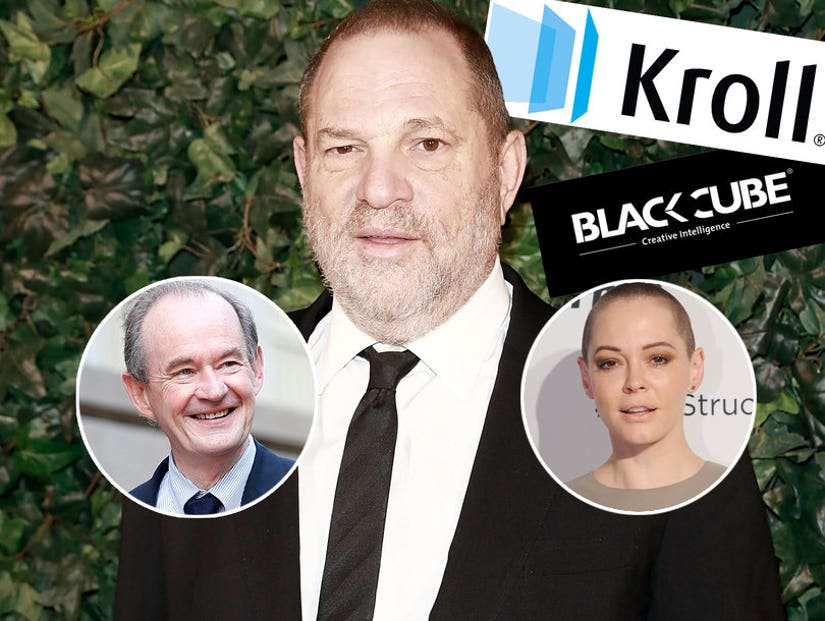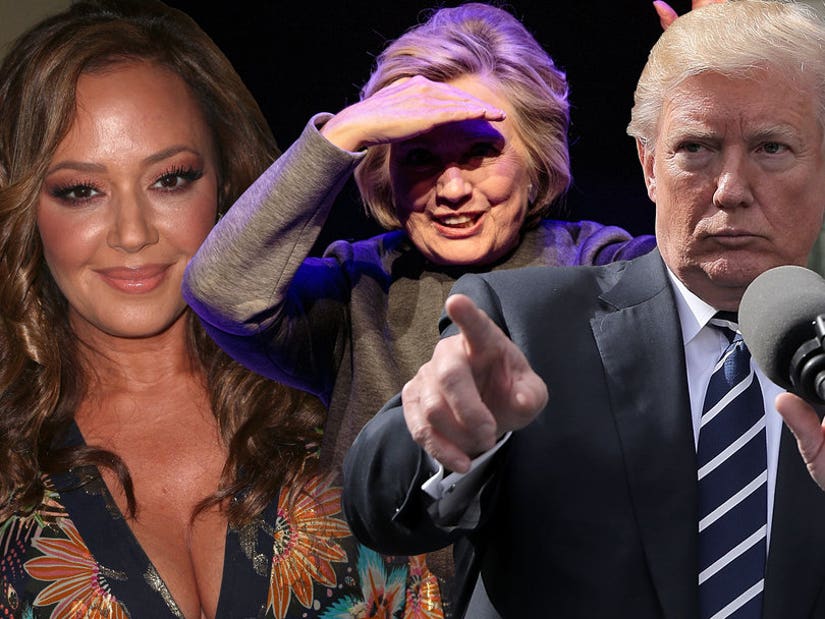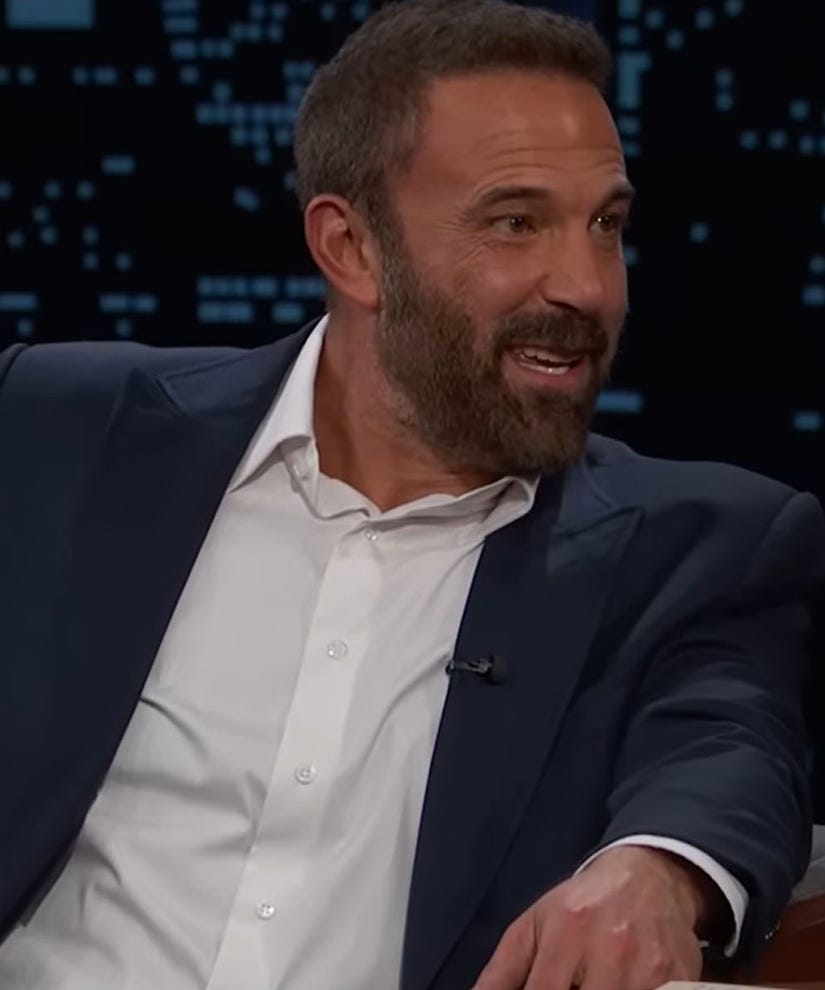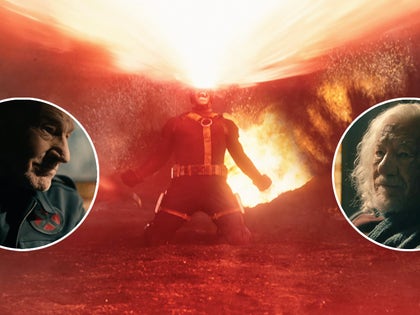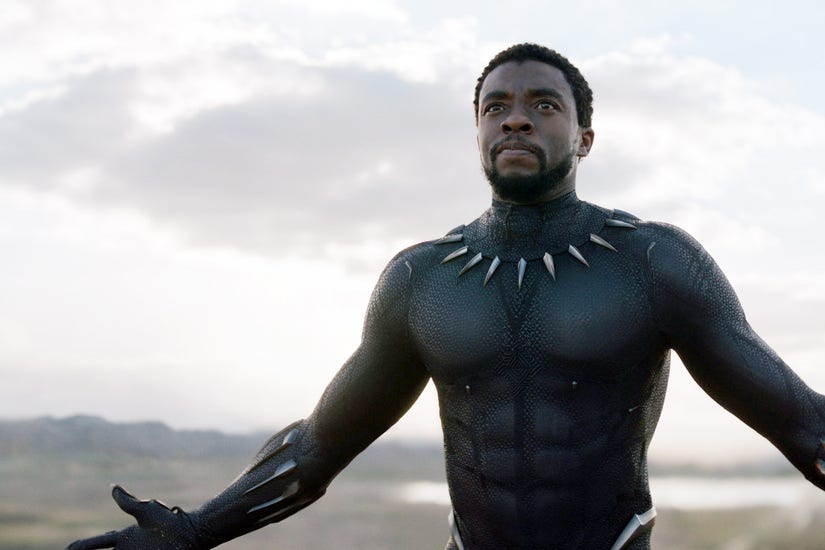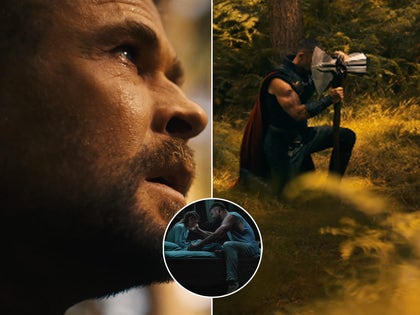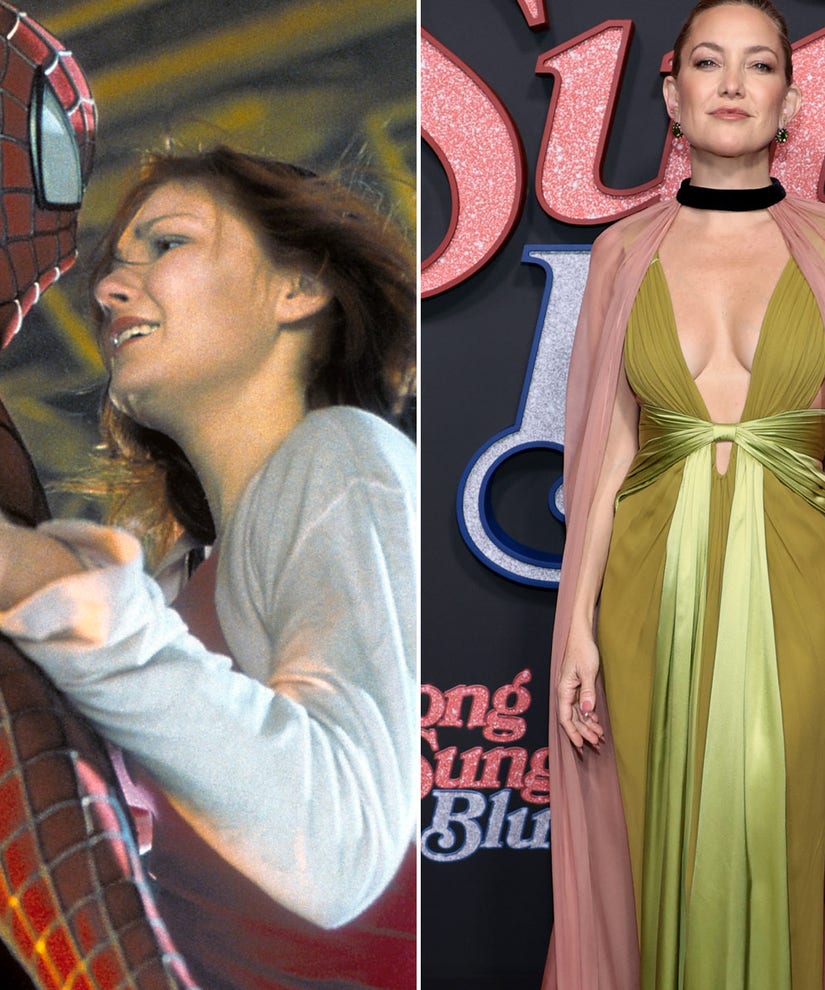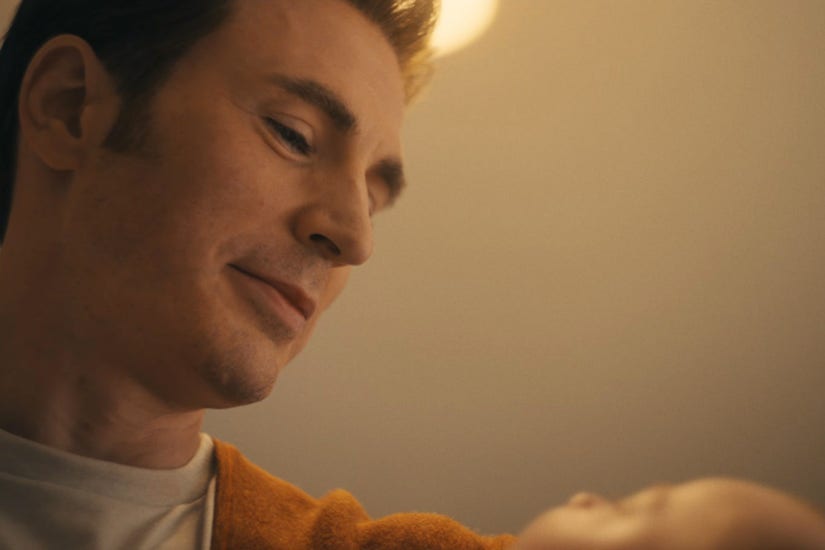Ready for more disturbing Harvey Weinstein scandal revelations?
The New Yorker published a new report on Monday, detailing the disgraced movie producer attempt to use private detectives, lawyers and even undercover former Mossad agents to stop the publication, as well as The New York Times, from publishing their exposés revealing decades of sexual harassment, misconduct, assault and rape allegations against Weinstein.
The 5,300-word report explores the "machine" that Weinstein created in order to keep women silent. Journalist Ronan Farrow even said he feared for his safety while researching and writing his newest exposé.
Craziest story I've ever reported, and a rare professional experience that made me fear for my safety (even including time in Afghanistan).
@RonanFarrow
Weinstein's lawyer previously denied all of allegations from numerous women in a statement reading: "Any allegations of non-consensual sex are unequivocally denied by Mr. Weinstein. Mr. Weinstein has further confirmed that there were never any acts of retaliation against any women for refusing his advances."
Here are the five biggest bombshells from Farrow's latest deep dive into the Weinstein scandal.
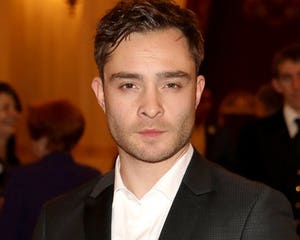 Getty
Getty
'Gossip Girl' Star Ed Westwick Denies Rape Accusation: 'I Do Not Know This Woman'
View StoryWeinstein Forced Two Former Employees to Make Lists of Potential Accusers
When Weinstein got word that there were several journalists who started to talk to women who wanted to share their allegations against the producer, he attempted to protect himself by forcing two of his former employees Danise Doyla Chambers and Pamela Lubell to create a list of women who might recount their experiences with the producer.
Although Doyla Chambers denied the opportunity to tell her side of the story, Lubell told The New Yorker that she felt manipulated into helping her former boss, because he kept telling her the list was for a book he was planning to put together.
Weinstein's lawyers deny the producer was ever planning a book, but there are several pages of documents that prove otherwise. For example, the lists the the women created were turned over to a private investigation company called the Black Cube.
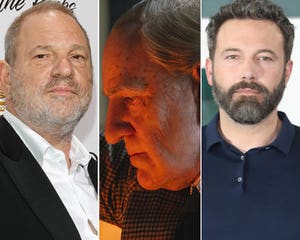 Getty/Sony
Getty/Sony
Today in Hollywood Harassment: Inside Weinstein Support Group, Kevin Spacey Movie in Trouble, Ben Affleck Speaks
View StoryWeinstein Hired Intelligence Companies
There have been several reports that Weinstein relied on lawyers, non-disclosure agreements, financial settlements and his bullying and degrading behavior to scare his accusers into silence over the past month, but Farrow's newest exposé reveals that "dozens of pages of documents" prove the mogul also hired two intelligence companies in the fall of 2016, Kroll and Black Cube. The Black Cube employs former officers of Mossad and other Israeli elite intelligence agencies.
The goal of the investigation that Weinstein personally monitored was to stop any publication from publishing abuse allegations against the Oscar winner. The Black Cube had their employees disguise themselves as several personalities to get leads on which women and publications needed to be silenced.
When Farrow reached out to the Black Cube for comment, the company said: "It is Black Cube's policy to never discuss its clients with any third party and to never confirm or deny any speculation made with regard to the company's work. It should be highlighted that Black Cube applies high moral standards to its work and operates in full compliance with the law of any jurisdiction in which it operates - strictly following the guidance and legal opinions provided by leading law firms from around the world."
 NBC
NBC
'SNL' Larry David Sketches Ranked From Worst to First as Miley Cyrus and Alec Baldwin Return
View StoryWeinstein's Spies Went Undercover to Befriend Rose McGowan
A Black Cube investigator, who posed as a London-based wealth manager named Diana Filip, reached out to actress and accuser Rose McGowan in May via email to ask if she would be interested in speaking about discrimination against women in the workplace. Filip promised that if the actress agreed to speak about her personal experiences, she would make an investment in the her production company.
McGowan took the Black Cube's bait and revealed that she spoke to Farrow in July about her experiences with Weinstein. Filip then reached out to Farrow, who never responded to her requests.
Weinstein also hired an agent to pretend to be a women's rights advocate so she could befriend and spy on McGowan.
After reading Farrow's piece exposing Weinstein's network of spies, McGowan tweeted:
Ronan Farrow your words will line the halls of justice
@rosemcgowan
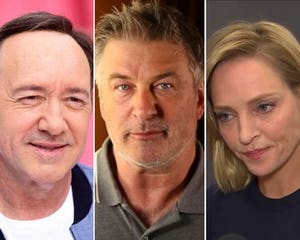 Getty/PBS/NBCUniversal
Getty/PBS/NBCUniversal
Today in Hollywood Harassment: New Spacey Accuser, Uma Thurman Goes Viral, Alec Baldwin Backlash
View StoryOne of Weinstein's Spies Posed as a Victim
One of Weinstein's investigators pretended to be a young lady named Anna who wanted to speak out about a time when Weinstein sexually assaulted her. She met with New York Magazine reporter Ben Wallace twice before he became suspicious of her allegations and dismissed her claims as "soap opera acting."
Wallace said that Anna contacted him and failed to offer any information about her own experiences, but was constantly interested in asking questions about his investigation and whom he has spoken to thus far.
The information collected in these meetings were then reportedly sent to Weinstein as an update.
 CBS
CBS
Ronan Farrow Talks Weinstein Exposé Aftermath and Woody Allen on 'Late Show'
View StoryWeinstein's Longtime Attorney David Boies Played Both Sides
According to the report, Boies' law firm helped Weinstein hire the Black Cube, which charged the movie mogul at least $600,000 for services. Although the full extent of Weinstein's dealings with the intelligence firms will probably remain a secret, since the relationships are protected by the attorney-client privilege, Farrow did write that Black Cube would get a bonus if they provided "intelligence which will directly contribute to the efforts to completely stop the article from being published at all in any shape or form." The company would also get an extra $50,000 if they could obtain the second portion of McGowan's book, "Brave."
"We should not have been contracting with and paying investigators that we did not select and direct," Boies told Farrow. "At the time, it seemed a reasonable accommodation for a client, but it was not thought through and that was my mistake. It was a mistake at the time."
As it turns out, Boies efforts to help Weinstein keep the story from seeing the light of day was actually a conflict of interest, as the attorney was publicly representing The New York Times at the same time.
"We learned today that the law firm of Boies Schiller and Flexner secretly worked to stop our reporting on Harvey Weinstein at the same time as the firm's lawyers were representing us in other matters," the Times said in a statement Tuesday. "We consider this intolerable conduct, a grave betrayal of trust, and a breach of the basic professional standards that all lawyers are required to observe. It is inexcusable and we will be pursuing appropriate remedies."

